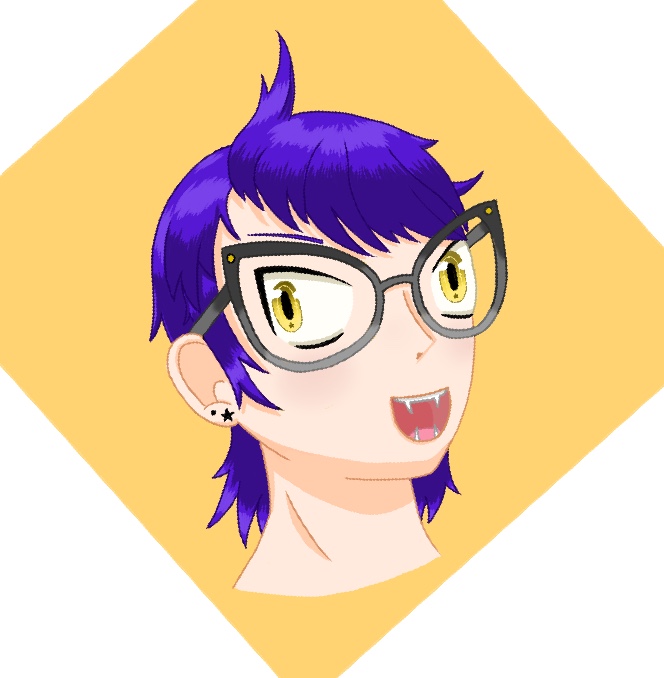Disclaimer: I have no quarrel with the mods using the term in the creation of this community. I understand why they chose it, as even if they share my disagreement with the term when applied to ADHD, there’s not really a better inclusive term. “Mental illness” is really the only other option, and naming a community that would probably invite darker discussions that the mods might not be prepared to handle.
Another disclaimer: I think the term is perfectly valid when applied to autism, as autism is not, to the best of my knowledge, a mental illness so much as a difference in processing. Being autistic is only “bad” in the sense that our society discourages autistic traits. (Apologies if this is wrong; I’m neither autistic nor especially knowledgeable about autism.)
The term “neurodivergent” implies that there’s nothing wrong with you if you have ADHD–you’re just special and different. But my ADHD is an illness that requires treatment. A lot of people will tell you that the only reason ADHDers struggle is because society is set up wrong, but I don’t think that’s true, at least for me. Being unable to remember anything, unable to self-start, and hypersensitive to rejection would be massive problems in any world. Sure, the world today is particularly brutal for ADHDers in a way we could probably mitigate if we reorganized society to be kinder, but that doesn’t mean ADHD isn’t ultimately a disorder that some people need to treat with medication and therapy.
The term “neurodivergent” implies that there’s nothing wrong with you if you have ADHD–you’re just special and different. But my ADHD is an illness that requires treatment.
I think the term is perfectly valid when applied to autism, as autism is not, to the best of my knowledge, a mental illness so much as a difference in processing.
As someone with both ADHD and autism, I want to touch on a perspective I think might be missing here (if others have commented similarly, excuse me for being a parrot). Both definitionally and experientially, autism and ADHD are both disabilities. Both come with strengths; autism makes me really good at learning patterns which helps with language learning, for example, and ADHD helps me have a large amount of focus however controlled on a specific topic. Yet, both are still disabling.
Autistic people constantly are confused by allistic (read: not autistic) people in their communication style as well as the overreliance on things like body language to convey meaning. Autistic people also deal with sensory overload issues.
ADHD people struggle to focus on tasks no matter how much they want to focus on them.
I could include more examples, but that’s not the purpose of this comment. This could also be stemming from my autistic perspective where when I, specifically, use the word “neurodivergent,” I use it to mean a collection of disabilities such as autism, ADHD, and OCD, and that’s it. I simply view it as a label much like what the label of “queer” is today despite its troubled history.
That’s a fair perspective. However, the counterpoint I’ve often heard from autistic advocates is that autism is only a disability on allistic terms. If everyone communicated in a way autistic people understood, it wouldn’t be a disability. This could be completely wrong, of course, but it’s what I’ve heard argued.
I don’t feel like this is the case with my variety of ADHD. I feel like even if the world tried to accommodate my ADHD traits, I’d still struggle quite a bit.
While you do have a point that autism can be mitigated by society, in a way, so can ADHD. There isn’t just one model of disability. There still is that disconnect from allistics that autistics have, and some autistic people do in fact go to therapy to help mitigate issues with their autism (note here because I feel it’s important: a) autism is often comorbid with things like sleep disorders, OCD, depression, anxiety, etc and a lot of therapy for autistic people does revolve around that and b) I am absolutely not referring to ABA which is just conversion therapy).
Also, when I mentioned me being autistic and only using neurodivergent to mean the collective of disabilities mentioned previously, I had also meant that it felt like to me that you were proscribing a meaning and/or an impact of the use of the term neurodivergent (and neurodivergence by proxy) that did not exist, one seated in prescriptivism. I don’t particularly see any negative impact to people using the term(s) either online or in real life and I’ve seen multiple people who are neurodivergent themselves use the term(s) to refer to the collective community of disabled people as just a label. While I can just offer up the “It’s just a label that we’re using to mean [insert thing here],” you could argue that I can’t do that because of the impact, but I have not seen such impact. I and some others on here have compared the term(s) to the word “queer” used for people in the LGBTQ+ community, although it has a trouble history as a slur but the community is reclaiming it and using it for their own despite its problematic past. But unlike the “queer” label (used to mean identities falling under the LGBTQ+ umbrella), the “neurodivergent” label (used to mean the collective of disabilities) doesn’t really have such a past. Nor does it have such an impact either.
Because I’m itching to, I’ll go further with that queer-neurodivergent comparison. Not only is “queer” used as a catch-all for the LGBTQ+ community, it’s also a label itself used to refer to someone who doesn’t want to label themselves specifically but rather is just not-straight. Neurodivergent can be used in this way as well referring to some kind of disability along that spectrum but not necessarily identifying it in any way. Perhaps one doesn’t need to identify their disability because they know the symptoms and they have coping mechanisms to help them mitigate those symptoms. Perhaps they don’t have the resources to go narrow down that label into a more specific one. Or perhaps they don’t care.
Really, as a TL;DR to this comment, the label isn’t doing any harm and, at least in my perspective, does nothing to belittle or minimize the struggles of the people in the ND community.
Right out the gate, I don’t like the ‘superpower’ narratives or the ‘something we should get rid of entirely’ ones myself for both ADHD and autism, as someone with both.
but that doesn’t mean ADHD isn’t ultimately a disorder that some people need to treat with medication and therapy.
First off, I agree that therapy can be big. The difference with ADHD coping methods is that I’ve found the ones have therapists recommended me generally helpful or well-intentioned neutral, while the vast majority of the autism ‘coping methods’ I’ve gotten have ranged from unhelpful to legitimately harmful.
Second is the medication point; some people don’t want or need medication, and that’s fine. Some others might not have a choice either way. I don’t have as many options there when it comes to ADHD because of anxiety and vice versa, so I might never have the option of having my ADHD mostly or completely treated through medication.
I mostly feel like it’s up to the individual. I kind of see the term as a net neutral and quite situational. I’ve found reading through the replies here to be quite interesting!
adhd is a neurodevelopmental thing and to my knowledge that’s just what neurodivergence means
I like neurodivergent in the same way I like queer.
It’s got a real punk feeling; I don’t into fit in to your normalised perception of reality, I don’t need to and I relish not fitting into this narrow definition of what it is to be.
I feel very differently about my ADHD and my queerness. My queerness is only a problem for me in that some of the people I share this world with want to eradicate me for it. There’s nothing wrong with it inherently. I like being queer, or at least I would if it didn’t result in so many people wanting to kill me.
I don’t feel that way about my ADHD. If I could cure it, I would. The problem with my brain isn’t that other people don’t like the way it works, it’s that the way it works is actively detrimental to my goals, desires, and very existence. Social change could mitigate but not erase the problems I face due to having it.
You have actually inadvertently highlighted one of the reasons I’m a little uneasy about the term “neurodivergence.” It feels less like a term for people who struggle than a fun club people can join to be rebellious, and I’m not sure how I feel about that. I’m okay with anyone who identifies as queer being allowed into the queer club, no questions asked. Pretty much the only requirement I have for the label “queer” is that you not be a (literal or figurative) cop. But it seems to me that the label “neurodivergent” takes a pre-existing label, “mentally ill,” and expands it to just… anyone who doesn’t like The Man keeping them down, I guess. I’m not sure I like that. I feel like maybe it dilutes the meaning of having a neurological difference a little.
I think I disagree with how you’re defining neurodivergence and I certainly feel differently about my ADHD.
ADHD is part of who I am, I really like how my brain functions and there are lots of benefits to thinking the way I do. The structure of society and to a large extend capitalism is what causes conflicts with my way of thinking. I am not wired to sit at a desk for 8 hours a day for the rest of my life. But that is what society demands it isn’t a problem with me
Yes my ADHD can make some of my personal goals more difficult, but I can manage that through medication and strategies like anything else that may prevent me from achieving my goals.
Lactose Intolerance prevents me from eating cheese, but I still want to eat cheese and am happy that I can take medication to do so; it’s a good thing that our economy isn’t built around a requirement to eat cheese though, treating those who can’t as lesser, other or wrong.
I don’t like the term mentally ill because it implies there is a normality or standard. It creates a false dichotomy between the ill and the not ill. I don’t accept that.
My brain is how it is, my ADHD is how it is, my depression is how it is. But it is my brain chemistry, it is unique to me, is is part of who I am physiologically and shapes who I am intellectually & spiritually.
I am not ill. I simply do no fit in society’s false idea of normality. I diverge from that idea.
I don’t think the term “neurodivergent” implies there’s nothing wrong with you and you don’t need treatment. Neurodivergent is also used to describe bipolar disorder, schizophrenia, and schizoaffective disorder. The term means that there is a structural difference in how the brain deveops in comparison to neurotypical people, as opposed to a “chemical imbalance” as is often used to describe mental illnesses such as depression and anxiety, which you can be born with but you can also develop due to trauma.
My friend uses “neurospicy”
Honestly, I liked the term a lot when I heard it. With competition like ‘learning disability’ and ‘a bit on the spectrum’, it was like a breath of fresh air. If it makes people who don’t have ADHD less likely to bully kids at school, then it may be worth the inaccuracy.
Plus, it hits the point that you can’t make broad assumptions about people with ADHD. Some people need medication/ therapy. Some people have coping strategies that reduce or eliminate the need for either. A lot of people are still trying to figure things out.
I understand why you’d feel that way, but I suspect it will become just another slur as time goes on, the way all terms that start off as neutral or positive terms for Being DifferentTM do. Wouldn’t be surprised if kids are calling one another neurodivergent as an insult in a generation or two.
just to add, this is known as an “euphemism treadmill”
This is a great way to describe the phenomenon, but I wonder what people will be calling it ten years from now.
I always that of neurorivergent as “my brain works different”. That applies to autism as well as ADHD. I don’t think the fact that there is medication for it is important. People with autism struggle just like people with ADHD. Not just because people don’t understand them but also because they don’t understand people. I have a friend with autism and I have ADHD. We both struggle because of our brains.
Neurodivergent also recognizes the overlap of a lot of these conditions, and the fact that the scientific community hasn’t finished researching and disambiguating these things.
I think your analogy of autism “being bad” because society discourages autistic traits applies better to ADHD.
We would have been the ones to survive in a hunter-gatherer society. Our brains are wired to pay attention to more stuff simultaneously, which would have kept us alive when predators were a threat to us. Society discourages distraction now, which is why we feel forced to conform to that.
I’m not sure if there is a “official” definition of neurodivergence, but everyone differs in the way they brain works. It’s not a great term since on the face of it, it could apply to nearly everyone. But I think of it as anything that makes your brain diverge from the commonly accepted average.
I hope my point makes sense.
See my other replies in this thread.
Neurodivergent is a technical term that denotes that your brain is wired outside the norm. It doesn’t actually say anything about if it has a medical diagnosis attached or not.
I found the second part kind of funny because executive function deficit, issues with hypersensitivity, extreme empathy, struggle with impulse control and so on, are all things that people with ASD struggle with.
I was just about to write this same thing… And that’s for people with high functioning ASD! I used to babysit a kid with ASD who was non-verbal with cognitive impairment. He will need care the rest of his life. To say there are no struggles with having ASD is just not true.
Yup, people with ASD, OCD, and CPTSD also struggle with these issues. They tend to be mis-diagnosed with other conditions on the list fairly frequently.
Side note: If you’re diagnosed with ADHD but stimulants make your symptoms worse, consider being evaluated for OCD instead. That was something a friend of mine experienced.
Lazy reply cause I’m tired, but could it be that your frustration lies on the neurodiversity movement instead of the term neurodivergent? A lot of your frustrations align with others’ criticisms of the neurodiversity movement, and I’m wondering if - because most people will conflate one with the other - you simply don’t consider yourself part of the neurodiversity movement instead?
I’m asking this because a lot of people here are saying they’re two different things, but if you go on like reddit they will talk about it like they’re the same thing. I want to make it clear that, they’re not, but if they’re being talked about like they are in widespread culture then I can understand your frustration with a term that is associated with something you don’t feel a part of, even if that’s not actually what it means
Perhaps. My only real exposure to either has been through social media, so that’s what my thoughts are based on. But I do feel like even if you divorce it from the neurodiversity movement, the word “neurodivergent” is to “mentally ill” as “differently abled” is to “disabled”: an unhelpful and somewhat idealized version of a more appropriate term. Though that specifically applies to it regarding ADHD, not every difference in neurology, as I said.
Oooo okay that’s a very interesting connection. To be fair though, I do have my gripes about how people treat the word “mental illness”, in that a lot of people treat it like it’s some gross word to avoid, that there’s a stigma that nono you shouldn’t identify with that. (Personally I don’t think the word “mentally ill” should have as bad of a connotation as it does right now, but that’s just my opinion and I don’t expect others to think the same.)
So I can see where you’re coming from with that. Even if you look at the initial, historical definition, it doesn’t negate the fact that the word neurodivergent is mainly used today as a way to say “different, but with a good connotation instead of a bad one”, and with a definition (vaguely) like that it can start to border on some toxic positivity. And I’m not sure if you’ve experienced something like this but I do find that I tend to think that people who put me on a pedestal or think of me as special or something don’t actually want who I actually am and all of them just think that I’m an exception to the actually negative stuff they hate. I’m not sure if I’m making any sense, uh tell me if this is confusing or not.
I don’t have ADHD, nor autism, just… suspected some flavor of neurodivergence. I don’t feel confident in putting it into a specific thing until I get tested. But I do identify with being neurodivergent because there’s nothing else to call me really when I don’t know what I have yet. I don’t really identify with the neurodiversity movement though, but I appreciate their existence. Just wanna put that out there so you know my biases.
I also realized you’re here to relate, not debate, so just a quick apology for fueling more debates. I don’t want to speak over your experiences, so I’ll ask instead, but do you mind if I give my own opinion about what “neurodivergent” means in relation to “mentally ill”?
I agree with you that “I have a mental illness” shouldn’t get a horrified reaction anymore than “I have an illness” does. It’s a shitty stigma we should try to break down.
Yeah, the toxic positivity is a big part of what I’m referring to here. I’ve been deeply disappointed to hear my fellow leftists say things like, “Under socialism, you wouldn’t need your ADHD meds! You’re not disordered, you’re just living in a capitalist society that doesn’t value you!” Which, while it’s true that living in a capitalist society makes things much harder on people with ADHD, I don’t think it’s true that none of us would struggle or need meds under a better system.
I totally understand why you identify with the term neurodivergent. It really does seem to be the best term that exists for people like you.
Go ahead. I’m perfectly down to have a discussion.
The term “neurodivergent” implies that there’s nothing wrong with you if you have ADHD–you’re just special and different.
I think that’s definitely something you’ve inferred but is not necessary implied.
For me, it perfectly describes a wide range of neurodivergent conditions such as ADHD, ASD, Dyslexia, Dyspraxia, et al. It describes a threshold that makes those different from neuro-diversity to where that person has a disorder that impacts their daily life.
Conversely, I feel that the term ‘neurotypical’ implies that theres nothing wrong with that person when those who are NT, tend to not say what they mean, talk in riddles and hold some very strange assumed opinions about things as well as considering themselves to be normative, very much to the detriment of those they think are outside the parameters they set in their minds.
“Mental illness” is really the only other option
That would imply there is a cure, which there absolutely is not, and that there is a normative ‘well’ condition.
That’s why “neurodivergence” is used instead of “neurodiversity”.
I think ADHD is absolutely only a mental illness because of the way society is set up. But that doesn’t mean society is set up wrong, there simply is no longer an evolutionary need for anyone to have ADHD. I don’t need medication and therapy, I just need it to be a modern civilized person. If society required me to go hunt for food then I wouldn’t bother taking my medication.
See, this is the precise opposite of how I feel about it. I put off getting food when it’s as easy as walking to the kitchen and putting it into the microwave. How would I survive if getting food was actually hard? The more difficult I expect something to be, the more I procrastinate on it. I’d put off foraging or just forget about it until it was too late in the year, then starve. Or I’d impulsively eat half my stores. The hunter brain hypothesis is unproven, and I find it uncompelling because of how antithetical it is to my experience. My brain wiring is actively detrimental to my own continued existence.
There’s also the not insignificant factor of ADHD-related conditions like depression, anxiety, and RSD having taken a signifcant toll on my mental health. The likelihood that I would just kill myself without meds is high.
And this is a minor point, but I would be so bored as a hunter-gatherer. There would be hardly any stimulation.
I think a hunter-gather with adhd would definitely be the hunter. Constant stimulation, problem solving, and thrill. Our ability to get distracted by things around us would keep us safe from predators. Our ability to forget to eat would help while we were out in the field. Hunting then would not being like now, sitting in a tree stand for hours until something walks by. It would be traipsing through the forest, looking for clues of animals, listening for animals hunting us, and then getting praise for our efforts when we brought back the kill. The forest is full of stimulating sites and sounds, much different than an office or a cubicle.
Then again, my adhd is minor, I don’t rely on medication, so my perspective could be way off. Just what I think.










